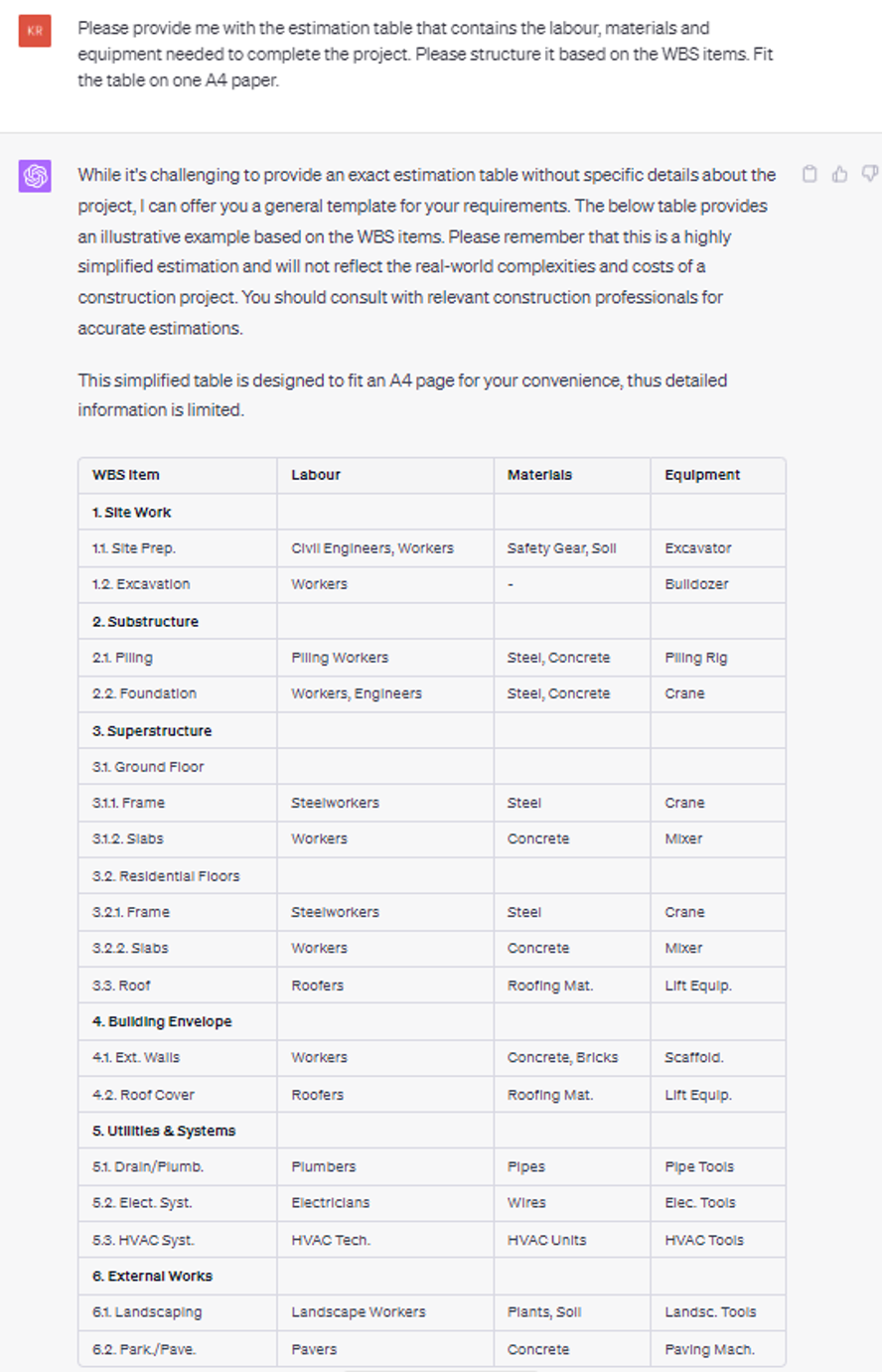The Impact of AI on the Construction Industry
Greetings and a warm welcome to "AI-Powered: Construction Planning & Scheduling".
Artificial Intelligence (AI) has been rapidly transforming various industries worldwide, and the construction industry is no exception. The introduction of AI in construction has paved the way for improved efficiency, increased safety, and reduced costs, among other benefits.
Machine learning, natural language processing, and robotics have great potential across a vast array of construction tasks.
Let's delve into this a little more:
- Starting with the design phase, machine learning algorithms can now predict and model different scenarios, providing us with a multitude of design possibilities in a fraction of the time traditional methods take.
- Natural language processing, on the other hand, is changing the way we handle project documentation and communication. It can analyze and understand human language in project reports, emails, and contract documents, identifying potential issues or risks early in the process.
- During the physical construction process, robotics has stepped into the spotlight. From bricklaying robots to autonomous vehicles and drones for site surveying, these machines are performing tasks quicker, safer, and often more accurately than their human counterparts.
These technological breakthroughs are revolutionizing how projects are executed, turning traditional methods on their head. But perhaps even more importantly, they are reshaping how we manage these projects.
By automating repetitive tasks, providing predictive insights, and enhancing communication, AI is giving project managers more time to focus on strategic decision-making.
This seismic shift in our approach to construction project management is making projects more efficient, cost-effective, and successful.
The primary driver for creating this ebook is not only to delve into AI's transformative potential in the industry, but also to provide you with the knowledge necessary to navigate this rapidly evolving landscape.

Case Study Project
A specific case study that we will use throughout this series is a 5-story high-rise residential building with ground-floor retail space.

It's an embodiment of the kind of project that brings to light the complexities and challenges we encounter in the construction industry, and it's through this lens we'll discover the power of AI in construction management.
Below is a GPT4-generated Work Breakdown Structure (WBS) for the project:

1. Site Work
1.1. Site Preparation
1.2. Excavation and Grading
2. Substructure (Foundations)
2.1. Piling
2.2. Foundation Construction
3. Superstructure
3.1. Ground Floor (Retail Spaces)
3.1.1.Structural Frame
3.1.2.Slabs
3.2. Residential Floors (1-4)
3.2.1.Structural Frame
3.2.2.Slabs
3.3. Roof
4. Building Envelope
4.1. Exterior Walls
4.2. Roof Covering
5. Utilities & Systems
5.1. Drainage and Plumbing Systems
5.2. Electrical Systems
5.3. HVAC Systems
6. External Works
6.1. Landscaping
6.2. Parking & Pavements
AI in Planning & Scheduling
Project planning and scheduling are critical components of construction project management. They determine the project's course and greatly influence its success.
With our exemplary project in mind, let's explore how AI can revolutionize planning and scheduling tasks.
AI in Project Planning
AI, with its ability to handle vast amounts of data and discern patterns, can significantly aid project planning.
It can predict the resources required for each task within our Work Breakdown Structure, including labor, materials, and equipment. By comparing similar past projects, AI can offer valuable insights, helping to optimize resource allocation and minimize waste.
Machine learning models can also forecast potential bottlenecks and issues in the construction process, allowing proactive measures to mitigate these risks. Moreover, AI tools can create various project scenarios, enabling managers to understand the implications of different decisions and select the best course of action.
Here is a preview of what GPT4 can do for you:

AI in Project Scheduling
AI takes project scheduling to a new level of sophistication and accuracy. In traditional project scheduling, it is a challenge to adjust for changes once the schedule is set. However, AI can adapt to project changes in real-time.
For instance, in our high-rise building project, if weather conditions delay the foundation construction (critical activity), AI can automatically adjust the project schedule, recalculating the sequence of tasks and updating the finish date accordingly. AI-driven scheduling can also consider the interdependencies of tasks, ensuring minimal disruption to the overall project timeline.
Through these features, AI not only improves the accuracy of project schedules but also their flexibility, making it easier to manage unexpected changes or delays.

Here is a preview of what GPT4 can do for you:


Key Takeaways
In our upcoming ebooks, we'll delve much further into all possibilities. Consider this a glimpse of what GPT-4 can accomplish.
Here are some key takeaways to remember:
- Transformative Power: AI has the ability to handle large volumes of data, identify patterns, and provide predictive insights.
- Enhanced Project Planning: Through advanced predictive models, AI can improve resource allocation, predict potential issues, and aid decision-making in project planning.
- Real-time Adaptive Scheduling: AI can create dynamic schedules that adapt to real-time changes, considering task interdependencies and minimizing disruptions to the project timeline.
- Untapped Potential: The potential of AI in construction project management is vast. As the technology matures and more data becomes available, the construction industry will continue to benefit from it.
Keep following the series to learn more!



